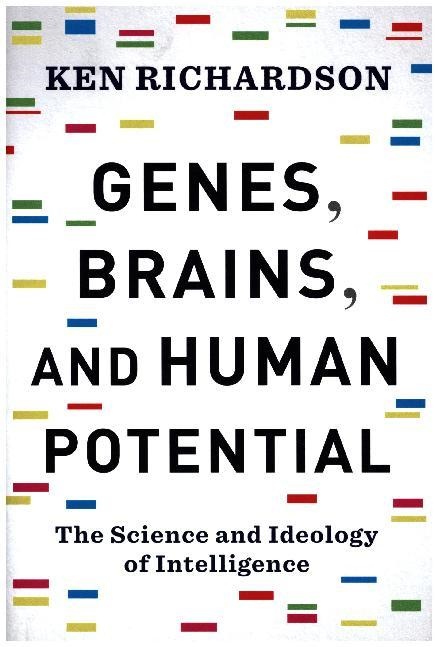Read more
For countless generations people have been told that their potential as humans is limited and fundamentally unequal. The social order, they have been assured, is arranged by powers beyond their control. More recently the appeal has been to biology, specifically the genes, brain sciences, the concept of intelligence, and powerful new technologies. Reinforced through the authority of science and a growing belief in bio-determinism, the ordering of the many for the benefit of a few has become more entrenched. In Genes, Brains, and Human Potential, Ken Richardson illustrates how the ideology of human intelligence has infiltrated genetics, brain sciences, and psychology, flourishing in the vagueness of basic concepts, a shallow nature-versus-nurture debate, and the overhyped claims of reductionists. He shows how ideology, more than pure science, has come to dominate our institutions, especially education, encouraging fatalism about the development of human intelligence among individuals and societies.
List of contents
Preface
1. Pinning Down Potential
2. Pretend Genes
3. Pretend Intelligence
4. Real Genes, Real Intelligence
5. Intelligent Development
6. How the Brain Makes Potential
7. A Creative Cognition
8. Potential Between Brains: Social Intelligence
9. Human Intelligence
10. Promoting Potential
11. The Problems of Education Are Not Genetic
12. Summary and Conclusions
Notes
Index
About the author
Ken Richardson was formerly senior lecturer in human development at the Open University. He is the author of six books, including
The Making of Intelligence (1999) and
Models of Cognitive Development (1998).
Summary
A rigorous critique of how science has promoted an ideology of limited intelligence and social inequality—and how to overcome it.
Report
"In his latest book, Genes, Brains, and Human Potential, Richardson has again creatively illuminated the bases and limitations of genetic reductionist accounts of human intelligence, showing how cutting-edge research provides a valid alternative to such counterfactual and egregiously flawed models. Informative and inspiring, he convincingly counters these failed accounts of intelligence, forwarding a new relational theory of human development." Richard M. Lerner, Bergstrom Chair in Applied Developmental Science and Director, Institute for Applied Research in Youth Development Tufts University

